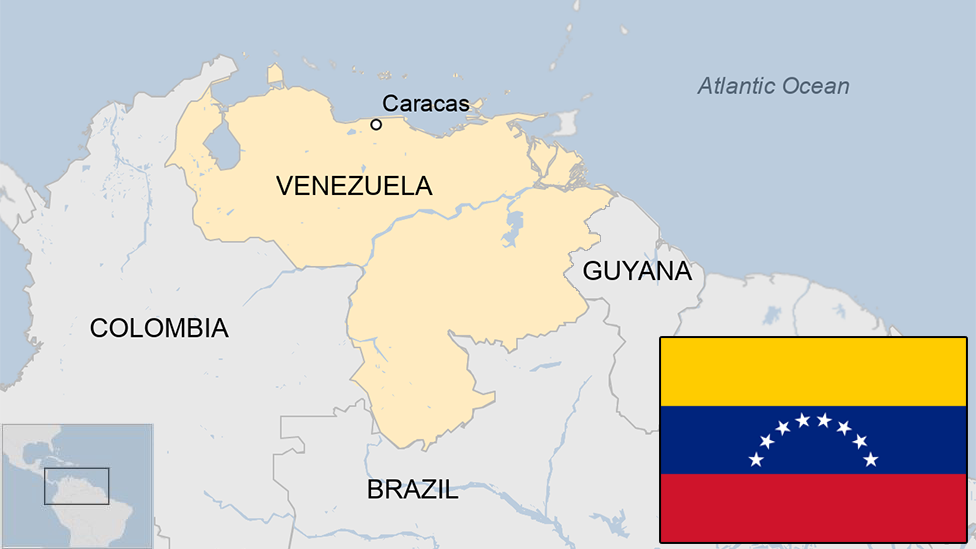Venezuela crisis: Jobless and hungry in industrial city of Valencia
- Published
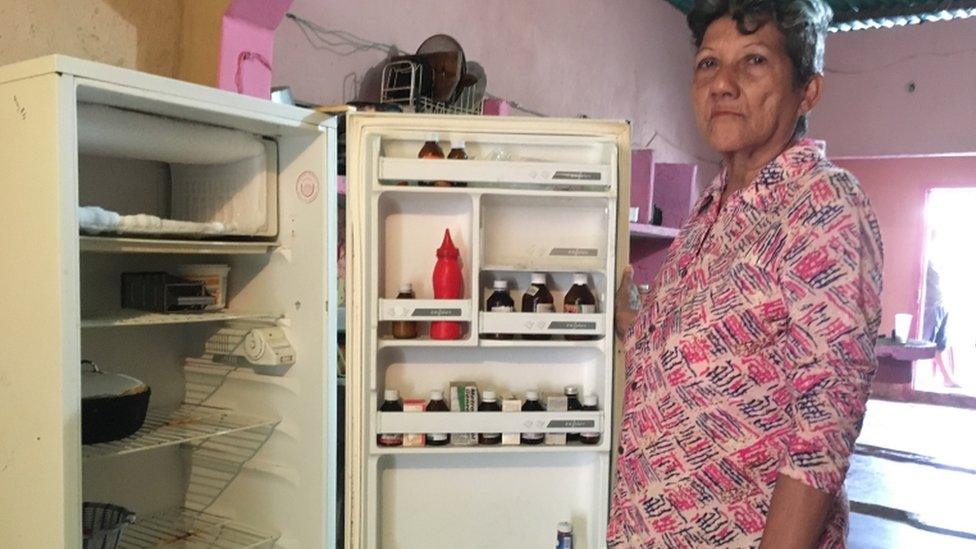
Cancer patient Haydee Fernanda Gonzales has to go hungry
It's mid-morning and it's another hot and humid day in Valencia, Venezuela's third-largest city. A group of men are standing outside the gates of a factory.
Among them is Gerard, a union representative. He is angry.
"Nine-hundred people are employed here, but only 400 work every day," he says. "The rest are all at home and are only being paid half their salary, and it's been like this for months."
This is just one of many plants belonging to Polar, the country's biggest private industrial corporation.
It produces everything from fizzy drinks to ice cream, beer and even detergents. This one, Alimentos Polar, specialises in tomato sauce and mayonnaise.
It used to churn out 16 million monthly units. This month, there has not been a single jar of sauce rolling off the factory conveyor belts.
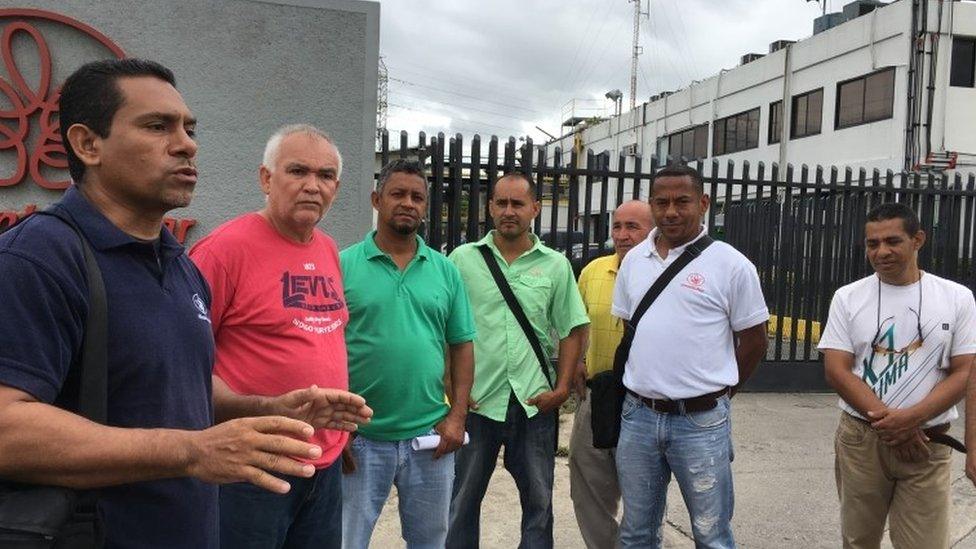
The men outside the Alimentos Polar plant are angry
"The company doesn't have enough US dollars to buy the raw materials, so production has ground to halt," Gerard says. "And even those lucky enough to work are paid a pittance".
To underline his predicament, Gerard does some simple maths. His weekly wage, he says, "is only enough for me to buy the equivalent of 1kg (2.2lb) of ham, two tubs of margarine and 2kg of corn flour on the black market. How are we supposed to survive?"
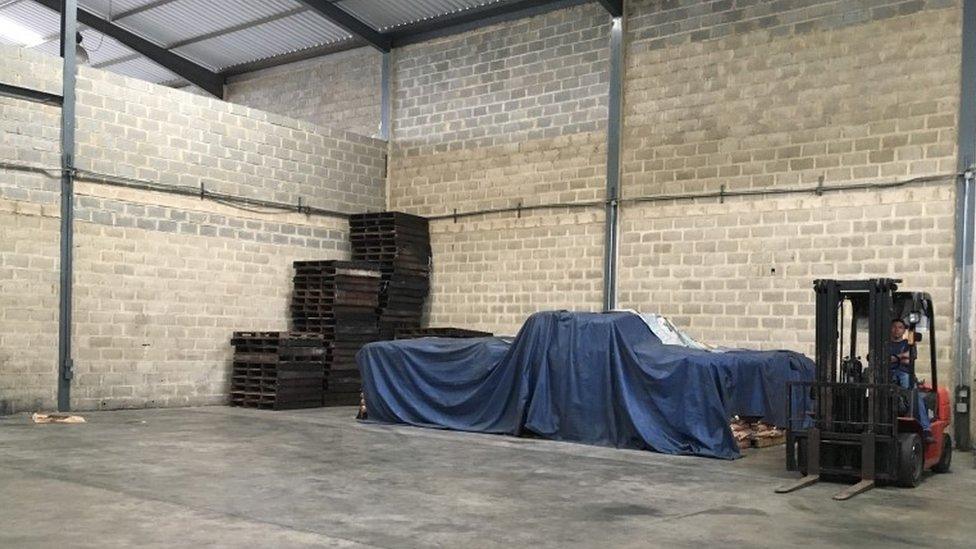
Many Venezuelan food plants are idle because they cannot get raw materials
The region of Valencia is Venezuela's industrial heartland. In 1998, it accounted for 40% of GDP. Today, that figure has tumbled to a mere 10%.
Political unrest, corruption and the fall in the price of oil have precipitated an unprecedented economic crisis. And everyone here is suffering.
"For the first time in my life I know what hunger is," says 69-year-old Haydee Fernanda Gonzales.
Softly-spoken and proud, she explains that things have never been so bad.
Venezuela resident Haydee Gonzalez describes life without the basic necessities
She lives in the village of Los Guayos, just outside Valencia. Like all the houses here, her home is small, dark and has no running water.
She points to her fridge, opens the door and sighs: "It's practically empty." There is no food at all, just a few bottles of medicine.
Ms Gonzales has diabetes, high blood pressure and breast cancer. She explains that she does not have the money to continue her chemotherapy treatment.
"I can't go on like this. It's too much. Sometimes I just want to die."
As she breaks down in tears, her daughter Yasmin rushes to console her. Both of them have not eaten in two days.
Food lottery
There are very few stallholders in Los Guayos and those who are open for business have very little to sell. So for many residents, there is an almost daily ritual they have to endure. It takes place in a nearby town which has a small supermarket.
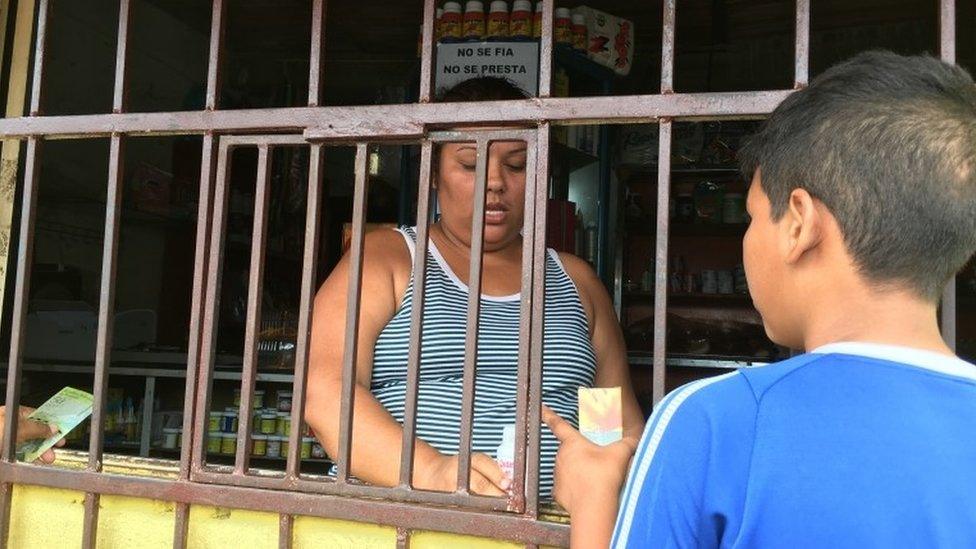
The lucky shoppers in Los Guayos get to buy food
People head there in the early hours of the morning, write down their names on a piece of paper and drop it into a bag.
Only a few names are picked out, and they are the ones who will be able to enter and buy whatever the shop has to offer on any particular day.
"We call it the food lottery," says Ms Gonzales. But the prices are beyond many people's means.
Venezuela has an unenviable record - the highest inflation rate in the world, a staggering 470%.
The International Monetary Fund has predicted that, if current trends continue, this time next year inflation could reach 1,700%.
Many small companies in Valencia are struggling to stay afloat.
Packing up
One of many facing an uncertain future is a private sugar packaging factory, just a few minutes's away from the giant Alimentos Polar.
They may be different in scale and size, but they face the same problem: a shortage of raw materials.
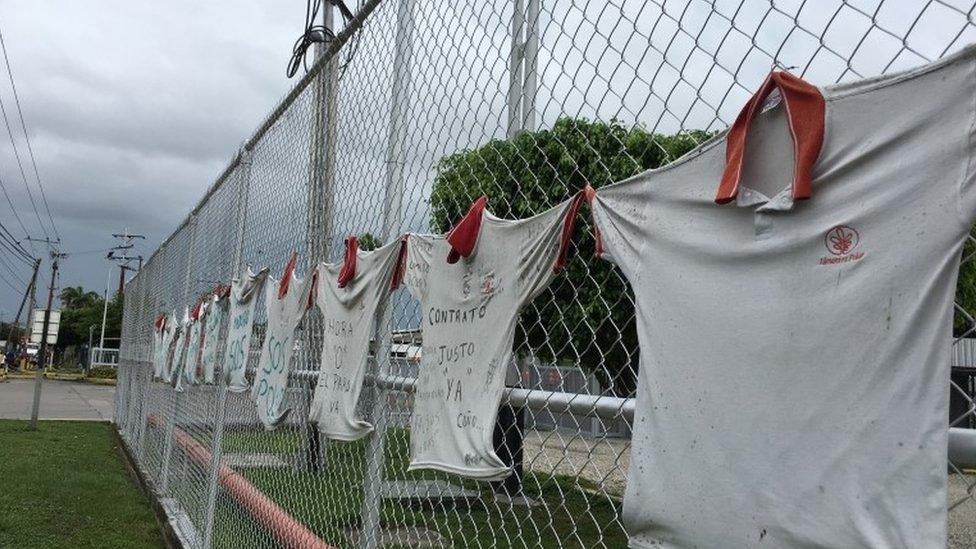
Workers at the Polar Alimentos plant in Valencia have hung their shirts on the fence in protest over pay
The director of the plant is unwilling to give his name. He fears reprisals from the government: "I have 28 employees but when they come here, most of them have nothing to do."
He pulls a sliding door and walks into a large room. His voice echoes in the quiet space. The only sound comes from a few pigeons who have found their way in.
"This is where we have our packaging machines. But look, see for yourself, they're all lying idle. We have plenty of plastic bags, but we have no sugar.
"These days, the only time we turn on the machines is just to test them to check that they are still working properly."
"This time last year, there was so much work that we had to do overtime and even night shifts," one of his employees points out that. "Now we just hang about all day, talk and sometimes play cards just to pass the time."
They have no work to do, but they are still being paid. "I feel a responsibility towards my workforce," says the director.
"And we are doing what we can to ensure they get a bit of money. It's hard enough already for everyone and so many people round here are going hungry."
Back at Alimentos Polar, Gerard is contemplating his future. He has made a big decision. "I have two young children and, for the sake of my family, I am going to leave the country, for good."
In January, Gerard is packing his bags and emigrating to Peru.
Julian Keane will be broadcasting live from Venezuela on BBC World Service from 04:00 GMT on Friday 7 October.
- Published25 May 2016
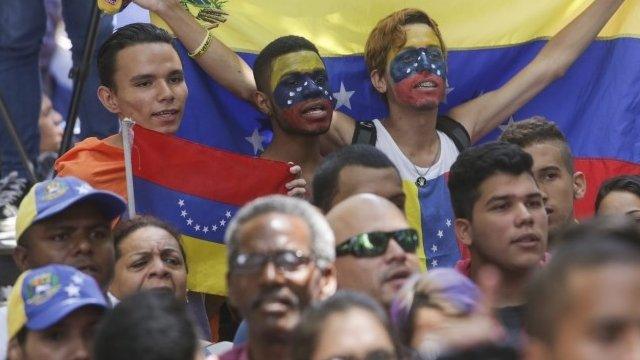
- Published25 May 2016
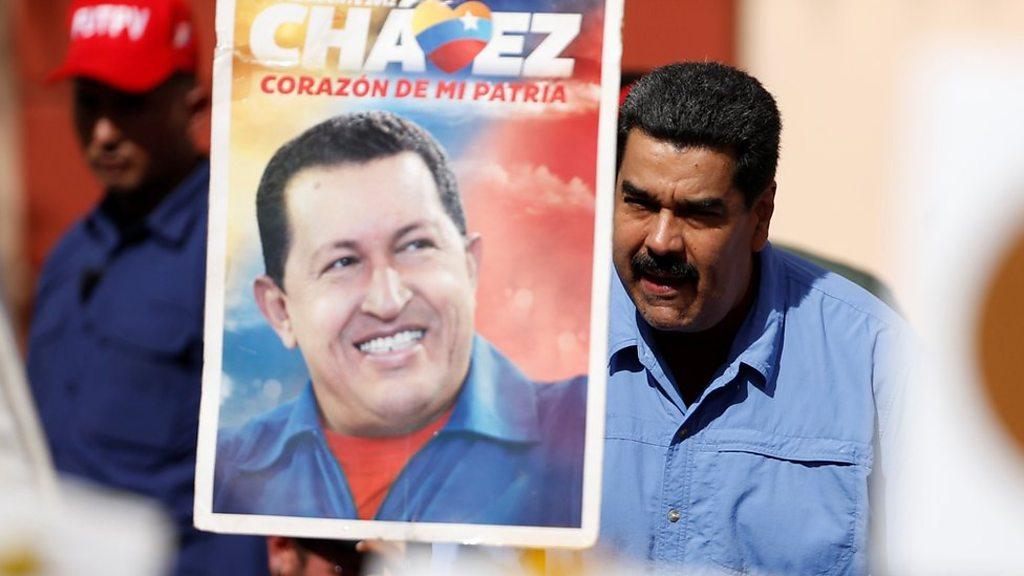
- Published12 August 2021
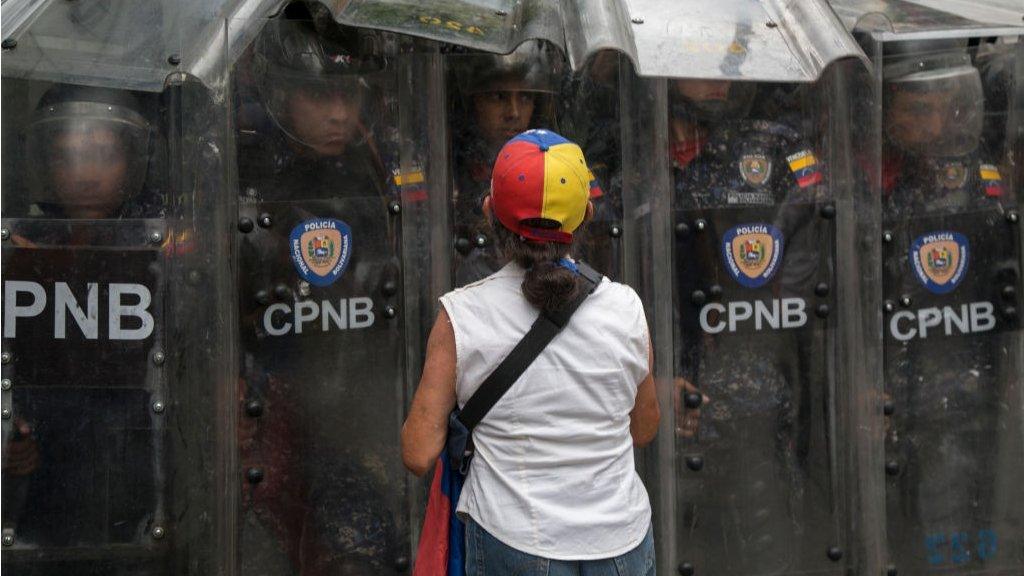
- Published10 August 2016

- Published9 September 2024
